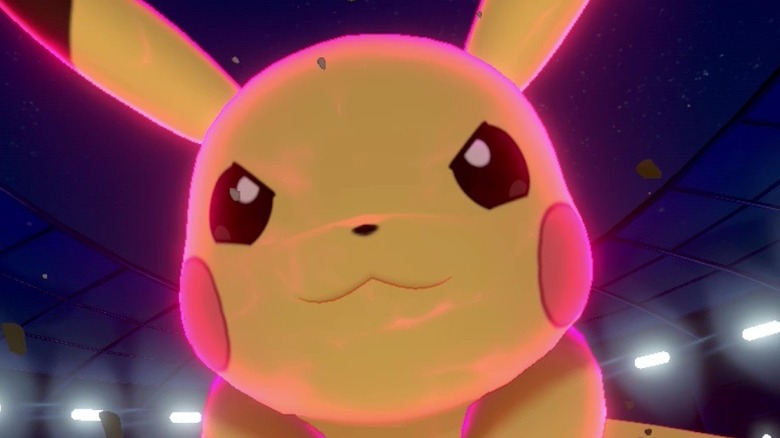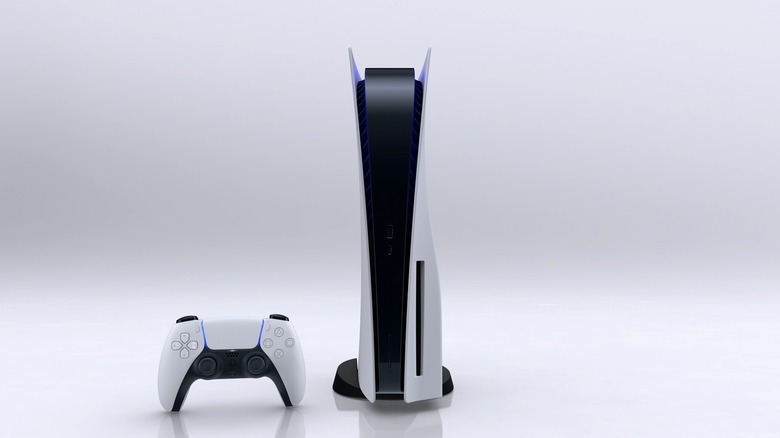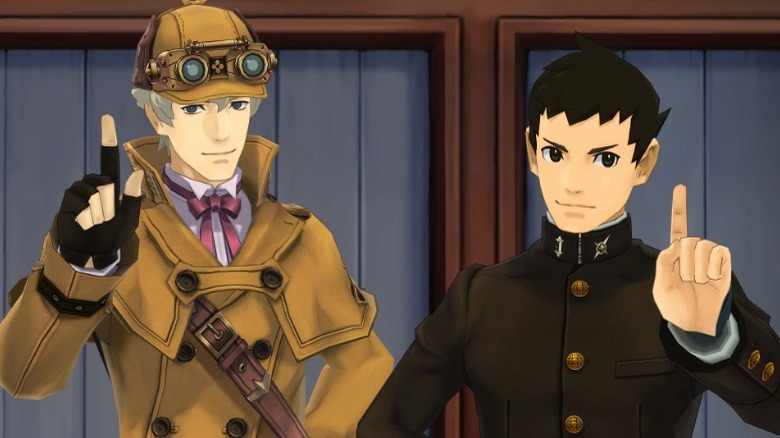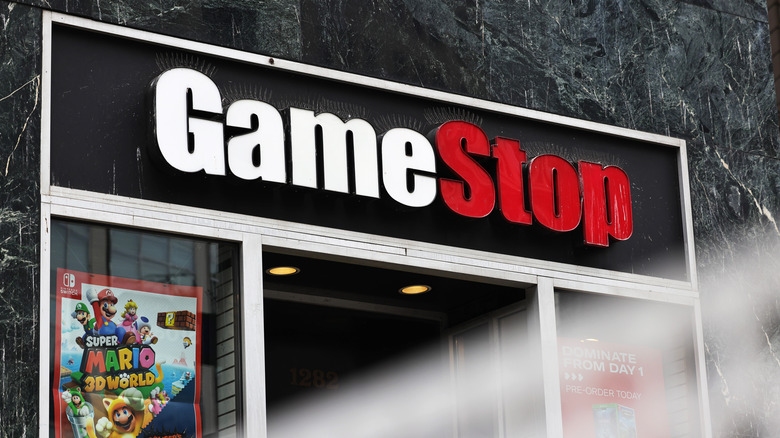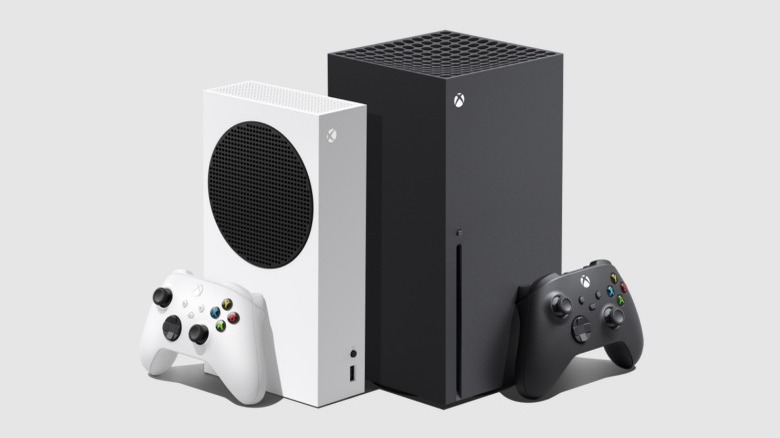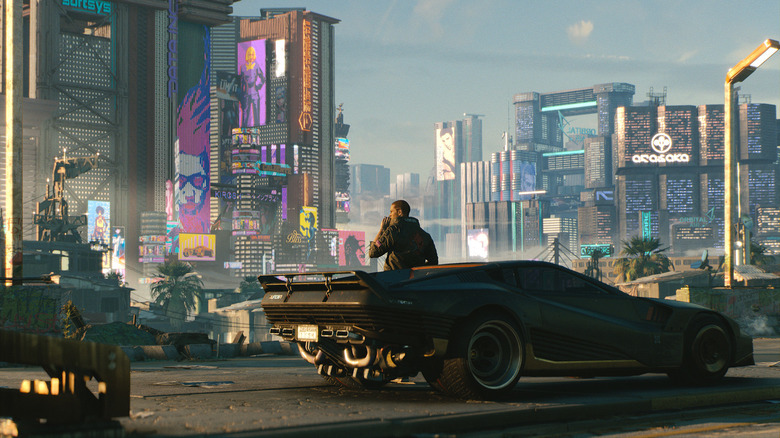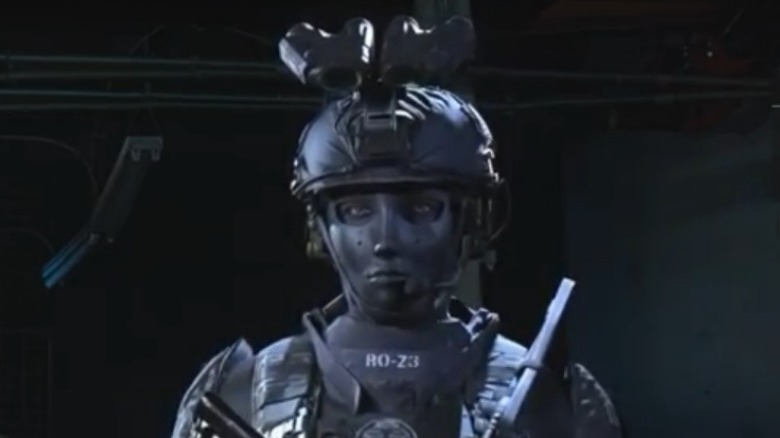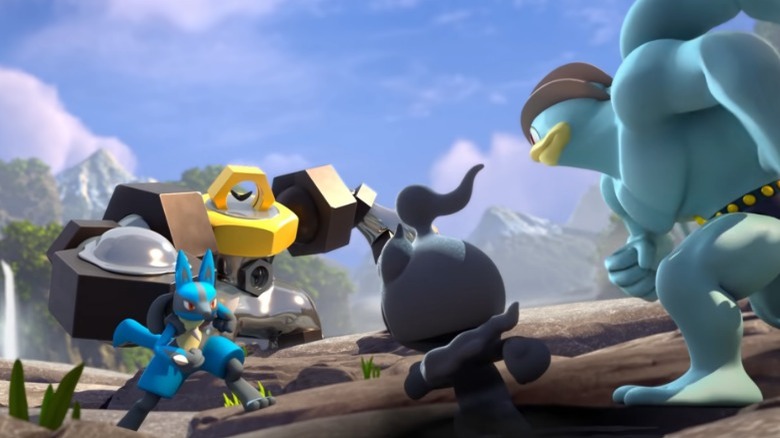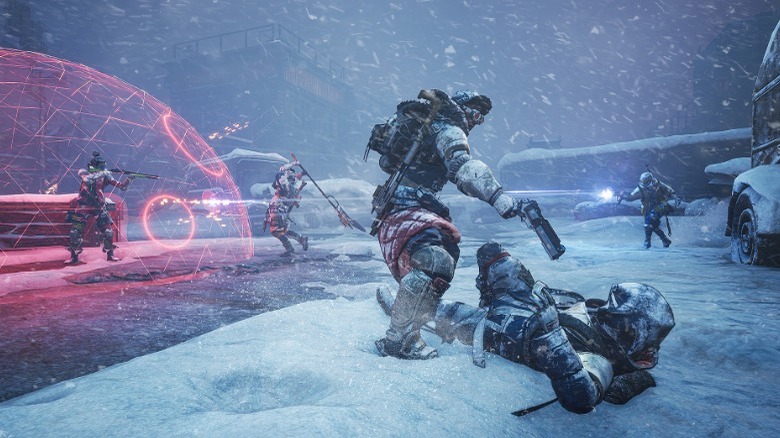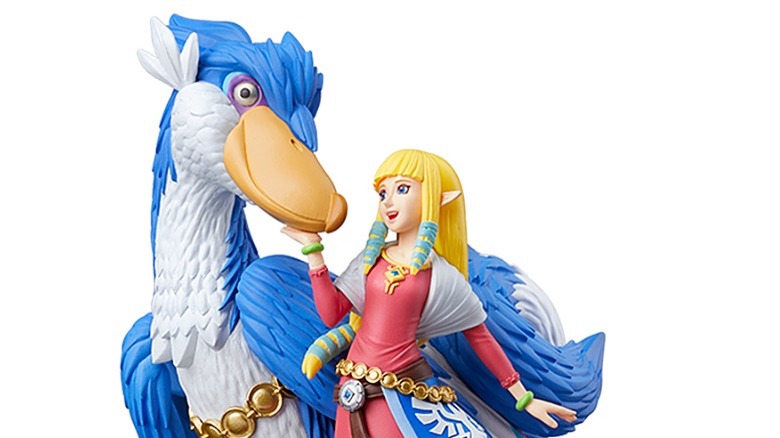Gaming Trends That Have Disappeared In 2021
Gaming trends are like the tides: They come and go with such frequency that you can almost set a watch to them. Horror games, for example, were once incredible popular, and MOBA titles such as "League of Legends" used to dominate the landscape. But, while horror games have made a comeback, MOBAs haven't quite done that yet. You never know if a trend washed away by the tide of popularity will ever resurface, only that all trends will inevitably disappear.
2021 will probably best be known as the year after the COVID-19 pandemic. However, 2021 will also probably be remembered as a year in which numerous gaming trends vanished. Granted, each year is home to its own disappearing gaming trends, but 2021 is slightly more notable than others, especially since audiences wanted to rekindle a semblance of normalcy after being cooped up. However, they exited lockdown to find a world where many comfortable old trends had gone the way of the Power Glove and had been replaced by new, unfamiliar styles.
While many trends that disappeared in 2021 are going to disappoint most gamers, others are for the best. Here is a list of the biggest gaming trends audiences waved goodbye to in 2021 so far.
Console supply barely keeping up with demand
It's tradition for audiences to congregate while waiting for new product releases on launch day. People could gather for a new iPhone or game console, but no matter the reason, they assemble in such numbers that supplies inevitably and quickly sell out. Usually, stores expediently restock so everyone who wants a piece of the new hotness will obtain it in short order. However, that was before COVID shut down manufacturing plants and created a vital component drought — and before economic predators took advantage of the situation.
When the Xbox Series X/S and PlayStation 5 hit store shelves at the tail end of 2020, gamers knew stocks would be limited. As explained by GamesRadar, this was largely because crucial semiconductors were in short supply thanks to COVID-related factory closures. But as time went on, console stocks seemed to dry up even more thanks to one of this console generation's biggest problems: scalpers. These product fleecers continuously lept on trickling restocks, employed bots to snag all available consoles nanoseconds after they went on sale, and sold them for well above the MSRP on eBay. As a result, scalpers have made a ton of money and consoles have remained scarce.
According to GameRant, semiconductor shortages and scalpers could rob most gamers of readily-available consoles until 2022, which is bad news for game developers. How can anyone expect to profit off producing games for next-gen consoles if nobody can get their hands on one? At least PlayStation 4 stocks lasted a good 12 hours in the UK (via BBC) back when that console launched.
Publishers ignoring cult classics
Which is more important: something new or something comfortable? Usually, video game developers try to tick both boxes at the same time; it's why there are so many "Call of Duty" games that play remarkably similar to one another. Studios often look to the past for inspiration, but they rarely let gamers relive it — or at least that used to be the case.
Remakes, remasters, and rereleases are more popular than ever, but most companies limit these to the biggest of big names, like "Grand Theft Auto 5." But in 2020, audiences received two surprise remakes, "Destroy All Humans!" and "Kingdoms of Amalur: Re-Reckoning," and 2021 pried open the nostalgia floodgates even further.
Now, gamers can revisit modern classics like "Ninja Gaiden: Master Collection," "Stubbs the Zombie in Rebel Without a Pulse," and most surprising of all, "Scott Pilgrim vs. The World." But Nintendo, not one to be outdone, upped the ante with reissues of "Famicom Detective Club" and "The Great Ace Attorney Chronicles," two old titles that never ventured beyond the shores of Japan until this year.
2021 isn't done with the retro revisitations, though. Gamers can look forward to "Final Fantasy Pixel Remaster" and "Fatal Frame: Maiden of Black Water," the latter of which will bring the "Fatal Frame" series to PC for the first time. And don't forget about those "Legacy of Kain" remake rumors. Here's hoping that 2021 is only the beginning of this reissue renaissance.
GameStop's downward trend
GameStop has had a shady reputation for years, and is often used as a punchline. The company practically wrote the book on questionable business practices, from buying trade-ins at anti-consumer prices to relabeling itself as "essential retail" to stay open during the COVID-19 pandemic, a move that worsened GameStop's public image. In the past, GameStop's dwindling stock prices reflected gamers' decaying opinions of the company.
Recently, however, GameStop made what can only be described as a miraculous recovery — one that shook up the stock market in unforeseen ways. Early in 2021, hedge funds started making bets that GameStop would soon die and decided if that was going to happen, why not profit off its demise? Investors started buying stocks at rock-bottom prices to engage in the risky practice known as a "short selling."
However, they were quickly countered by other investors who engaged in a "short squeeze" (via ABC News), which forced the short sellers to either fold or repurchase the soaring stocks. Long story short, according to Yahoo! Finance, GameStop stocks are now worth around $200 instead of $3.
In the course of several weeks, GameStop went from closing hundreds of stores due to miniscule stock prices and crushing debt to having the clout to lease a new fulfillment center in Reno. The irony of the situation? Had the short sellers not gotten involved, GameStop might have actually gone bankrupt.
Xbox's small presence in Japan
Not every company can overpower a home-field advantage. When Microsoft introduced the Xbox, it fought an uphill battle against the already-entrenched Nintendo and Sony platforms. But while the Xbox consoles eventually found fertile soil in Western countries, it just wasn't able to ingratiate itself to Japanese audiences, at least until 2021. Sort of.
According to Forbes, there is a "cultural disconnect" between the Xbox and Japanese gamers. Japan is too different a market for the console. Eurogamer seconded this belief, reporting that before the first Xbox launched, many Japanese publishers were fearful they would "alienate Sony by supporting Microsoft." Xbox just couldn't put its foot in the Japanese market's door — but then the COVID-19 pandemic upended that market.
During the 2020 Tokyo Game show, Head of Xbox Phil Spencer boldly stated that Japan is Xbox's "fastest growing market" (via GamesIndustry.biz). In 2021, Xbox's business lead for Asia, Jeremy Hinton, told IGN that Xbox has seen "phenomenal growth" in Japan. This growth came primarily from Xbox Game Pass subscribers and first-time Xbox owners who flocked to the more compact Xbox Series S.
It's difficult to determine if the Xbox's growth is due to Microsoft finally connecting to Japan on a cultural level or because the PlayStation brand recently fell out of favor with Japanese audiences (as reported by Video Games Chronicle), but Microsoft will take advantage regardless.
Unecessary crunch
When you work in the high-stakes world of video games, burning the midnight oil every so often seems to come with the territory. That final pass on level design isn't going to finish itself, you know. But what happens when entire teams are forced into 80-hour work weeks for months on end with no overtime pay to show for it? That is what you call crunch, a controversial practice that might finally be deader than the Atari Jaguar.
For the past several years, numerous companies have engaged in crunch to get games out the door. Some developers, like Rockstar Games, believe this practice produces game-changers such as "Red Dead Redemption 2," but that is the exception to the rule. As pointed out by outlets such as Kotaku and Bloomberg, crunch can also result in financial and critical bombs such as "Anthem" and "Cyberpunk 2077."
If you want a truly quality game, you might need a studio that eschews crunch. Look no further than Supergiant Games' "Hades," which Kotaku reported required no crunch, or Insomniac Games' "Ratchet & Clank: Rift Apart," which likewise avoided egregious overtime.
Many studios are taking notice. Double Fine is proud that its team has not (and will not) crunch to produce "Psychonauts 2," (via VG 24/7), while Respawn Entertainment is doing everything it can to avoid crunch for future "Apex Legends" seasons.
Believing cosmetic DLC doesn't give players an edge
Many company representatives say that cosmetics can't and don't afford players any tangible benefits when they try to defend DLC costumes. That argument holds less and less water every year, and in 2021, its well of credibility finally ran dry.
In order to keep players coming back for more, battle royale games typically feature an armory's worth of cosmetic skins and emotes, and "Call of Duty: Warzone" is no different. Many of its costumes are wild and wacky, such as Jackal's Iridescent skin that makes him look like a neon predator. Even more costumes ape the age-old battlefield tactic of blending in with environments, and Season 5's infamous Roze Rook skin blended in a little too well.
At release, the Rook skin was entirely matte black with no reflective surfaces whatsoever, and few gamers could pinpoint opponents who wore it in dark environments, according to IGN). To add insult to injury, the skin was the final reward for the purchasable Battle Pass, which unleashed a tidal wave of "pay-to-win" accusations.
Granted, Infinity Ward has listened to feedback and nerfed the skin from black to grey. And, the outfit is far from the only cosmetic item that provides unfair advantages (for instance, "Fortnite" features an emote that lets players hide in bathtubs). Regardless, thanks to the high-profile controversy that surrounded the Rook skin, Roze essentially sniped the "cosmetic DLC" argument in between the eyes, and it will probably never recover.
Obtaining Pokemon cards
A truly spectacular video game can inspire and launch new products and media juggernauts. "Pokemon" is a prime example, as the video game's humble origins spawned tv shows, countless toy lines, and a trading card game. It would be a shame if a bunch of scalpers ruined the fun in an ill-advised pursuit of profit.
While trading cards have always been a hot commodity, in 2021, they became infinitely more so, which caused a mad dash endangered participants and onlookers alike. In May 2021, according to CNN, one Target in Wisconsin was ground zero for a brawl over trading cards. Four people assaulted a man who purchased sports cards, which caused Target to crack down and temporarily nuke the sales of all trading cards, including Pokemon cards. Though this decision was eventually reversed, it should be noted that retail chains weren't the only unwitting hosts of Pokemon card controversies.
To celebrate 25 years of Pokemon trading cards, McDonalds provided special Happy Meal boxes that bore the smiling face of Pikachu and a special pack in every meal. Each pack included various goodies, most notably four-card packs with limited-edition starter squads and one guaranteed holofoil card per pack. While some children received these Happy Meal cards, most card packs were snatched off the shelves by scalpers who placed the rare ones up for auction on eBay for tens of thousands of dollars.
Much like Team Rocket, scalper reputations are blasting off again.
Battle Royales dominating the landscape
It seems like only yesterday that the video game market was swamped with battle royales. These games fought for dominance in an actual free-for-all, and while titles such as "Fortnite" and "Call of Duty: Warzone" have flourished, others (like "Radical Heights") were quickly eliminated. By the look of things, companies aren't too willing to fight for the battle royale crown anymore.
Even though countless studios wanted in on the battle royale action a few years ago, by 2021, that clamor died down. Only a few big-name battle royales are in the works, including "Grit" and "Vampire: The Masquerade – Bloodhunt." One of the more recent battle royale titles, "Scavengers," is barely scrounging enough players to justify its server upkeep.
Moreover, several major titles are suffering something of a battle royale lull. For instance, even though Bethesda added the battle royale mode Nuclear Winter to "Fallout 76," players preferred exploring the irradiated (and glitch-ridden) post-apocalypse to fighting for dominance on a shrinking map. Because of this, Bethesda is sunsetting the mode in September. And in a surprise move, one of the current reigning battle royale champions, "Apex Legends," is exploring new game mode frontiers with "Arenas." No shrinking rings or searching for equipment; just two teams fighting for dominance in a series of quickfire matches.
2021 could potentially hide a future surprise battle royale up its sleeves, but that seems unlikely. After all, even "Battlefield 2042" will ship without a battle royale mode. So, if battle royales really aren't that popular anymore, one must wonder: What new multiplayer genre will dominate the gaming landscape next?
Amiibo as fun extra content
Toys-to-life began as physical DLC, more or less. If players wanted to fire weaponized gravity in "Starlink: Battle for Atlas," they had to buy toys that would only work with that game (until those toys were discontinued). Then Nintendo's amiibo line changed the market. These plastic figures are compatible with a sizable library of titles and provide only fun, superfluous extras such as new difficulty modes and cosmetic costumes. At least, that's how things used to be.
When Nintendo announced "The Legend of Zelda: Skyward Sword HD," many fans were excited to swing around their Joy-Cons like a sword, but that elation was drowned out by the game's dedicated amiibo. Long story short, the ability to fast travel, which trims away a significant portion of backtracking (one of the game's biggest problems), is locked behind an amiibo that costs $25.
Also, this amiibo is the only figure compatible with "Skyward Sword HD." You can't even use the Skyward Sword Link amiibo with the title, which is all sorts of confusing and shortsighted. Virtually nobody likes Nintendo's decision, and numerous YouTubers have torn into the company because of the new piece of "Zelda"-themed plastic.
Nintendo doubled down with the introduction of "Metroid Dread" amiibo that offer players a full extra energy tank and missile reserve tank, giving players who bought the toys an instant advantage and seemingly undermining the survival aspects of the series.
One can only hope that these quality-of-life-hogging amiibo aren't the new normal. If not, we might see more downright necessary features locked behind future figures ... that are scalp-sniped as soon as they are announced.

